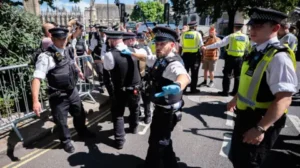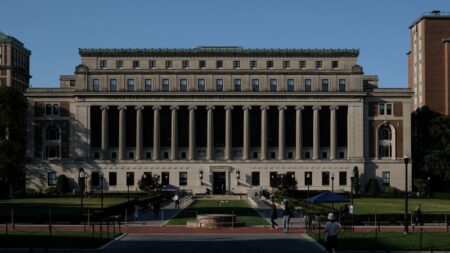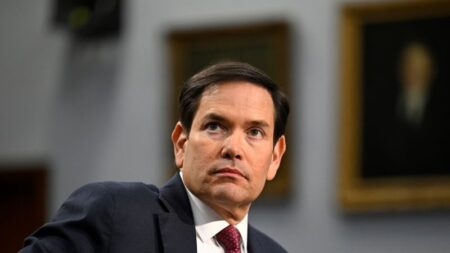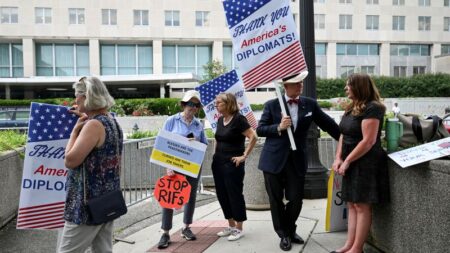On a recent Saturday, Secretary of Homeland Security Kristi Noem publicly committed to intensifying the department’s approach to immigration enforcement, buoyed by a substantial funding increase from President Donald Trump’s domestic policy legislation, which was ratified last week. This announcement reflects a broader agenda of the Trump administration aimed at controlling immigration and enforcing stricter regulations at the nation’s borders.
During a press conference held in Tampa, Florida, Noem highlighted the significance of the reconciliation bill, which Trump has dubbed the “big, beautiful bill.” “Now that the president’s reconciliation bill has passed, we also have more resources,” Noem stated, emphasizing the increased funding that would empower the Department of Homeland Security (DHS) in its immigration policies. She conveyed a strong message, asserting, “We’re going to come harder and faster,” indicating a renewed vigor to tackle immigration-related challenges with enhanced determinations, particularly targeting individuals the department considers criminal elements.
The new legislative framework allocates an immense budget to immigration enforcement agencies, namely Immigration and Customs Enforcement (ICE) and Customs and Border Protection (CBP), which operate under DHS. ICE is set to receive close to $75 billion by the year 2029, with $45 billion specifically earmarked for augmenting the infrastructure of its detention facilities. On the other hand, CBP is allocated over $46 billion, a significant portion of which is designated for the continuation and reinforcement of the US-Mexico border wall initiative.
In her speech, Noem defended the Trump administration’s rigorous anti-immigration stances, which have included controversial policies such as attempts to abolish birthright citizenship, deporting migrants to countries other than their origin, and executing aggressive immigration raids across various public and workplace settings, particularly highlighted in recent operations in Southern California. She firmly articulated that Trump has received a “mandate from the American people to clean up our streets and to help make our communities safer,” underpinning the administration’s rationale for its stringent immigration policies.
Notably, however, Noem’s statements followed a significant legal challenge to the administration’s practices. A federal judge, Maame Ewusi-Mensah Frimpong, an appointee of former President Joe Biden, recently delivered a ruling that posed serious obstacles to the DHS. The judge concluded that DHS had been conducting immigration interventions in Los Angeles without establishing probable cause. This ruling included a grant for a temporary restraining order, halting the department’s capacity to detain individuals based solely on characteristics such as race, ethnicity, language, accent, or even their presence at particular locations such as bus stops or workplaces.
Faced with inquiries regarding the judge’s recent order during her conference, Noem did not hold back her contempt, labeling the judge “an idiot” and reaffirming the DHS’s commitment to its practices. “We have all the right in the world to go out on the streets and to uphold the law,” she declared, maintaining that the operations of the department would not undergo any modifications, branding the judge’s findings as “absolutely false.”
The administration’s response to the judicial ruling did not waver. A spokesperson for the White House, Abigail Jackson, condemned the decision in a statement to CNN, asserting it as a “gross overstep of judicial authority.” Jackson underscored that no federal judge possesses the legal authority to dictate immigration policy, a power that she claimed belongs to Congress and the President. “Enforcement operations require careful planning and execution; skills far beyond the purview or jurisdiction of any judge,” she added, bolstering the administration’s stance.
Contributions to the report were made by CNN’s Julia Benbrook, who provided insights into the broader implications of the press conference and the evolving landscape of immigration policies under the Trump administration. The tension surrounding immigration enforcement and judicial oversight continues to unfold, reflecting deep divisions within the country regarding immigration and law enforcement policies.











